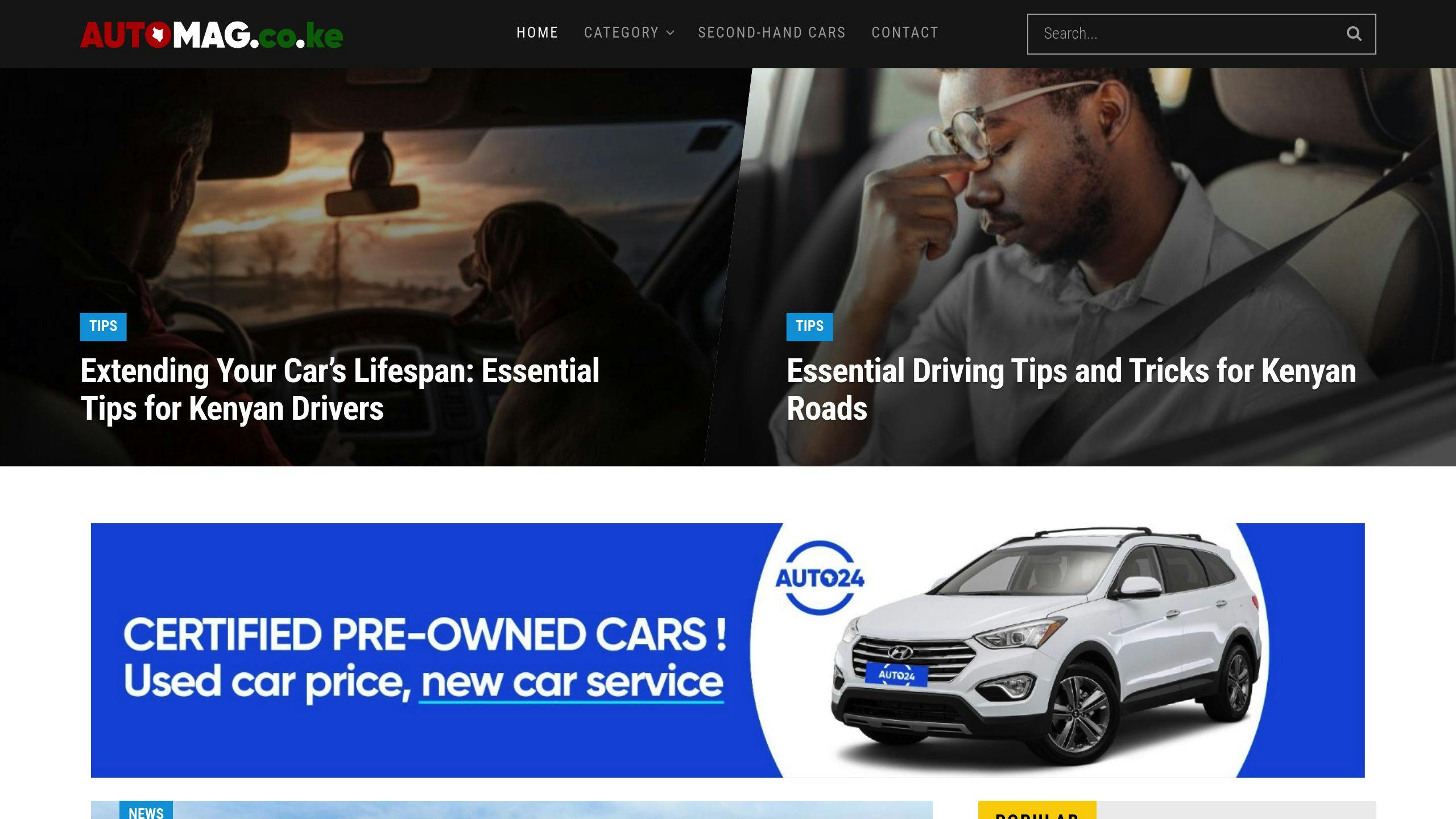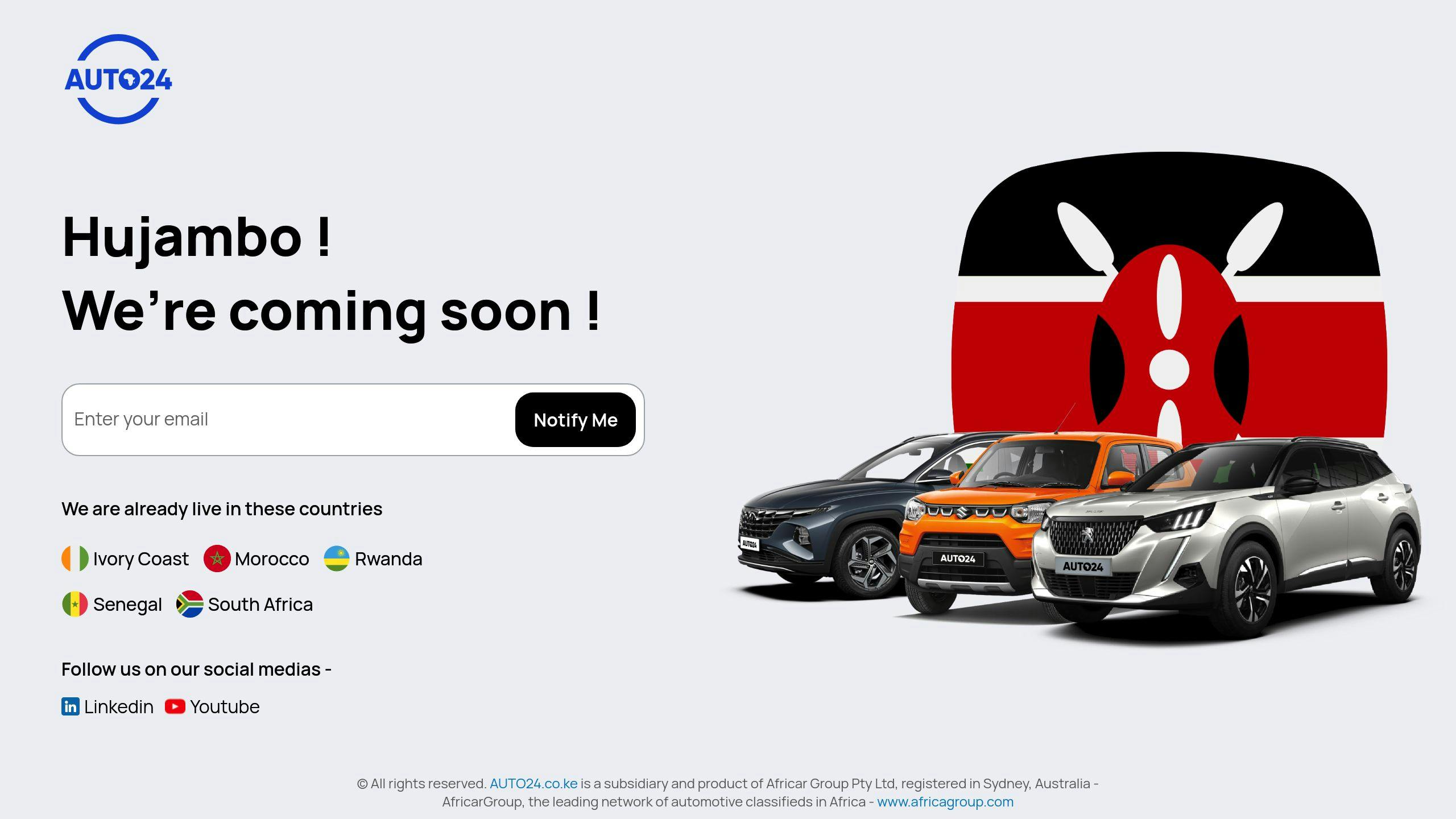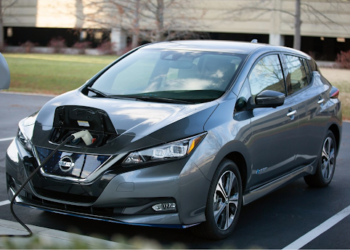Buying a used car in Kenya can be risky if you don’t know what to look for. Hidden mechanical issues, legal problems, or fraudulent sellers can turn your purchase into a costly mistake. Here’s a quick guide to ensure a safe and smart buy:
- Check the Car’s History: Use the NTSA TIMS portal to verify ownership, accident history, and outstanding loans.
- Inspect the VIN: Confirm the Vehicle Identification Number on the chassis, engine, logbook, and NTSA records to avoid tampered or stolen cars.
- Verify Documents: Review the logbook, insurance certificate, KRA clearance, and NTSA records for consistency and legal compliance.
- Inspect the Car: Examine the exterior, interior, and engine. Take it for a test drive to spot performance issues.
- Use Trusted Platforms: Services like AUTO24.co.ke offer pre-inspected cars, warranties, and refund policies for added security.
How to buy a used car and what to check when buying in Kenya
Steps to Take Before Inspecting the Car
Before examining a used car in Kenya, taking a few preparatory steps can save you time and help you avoid fraud or hidden problems. These steps ensure you’re better prepared and can filter out problematic vehicles early.
Check the Car’s History
Use the NTSA TIMS portal to review the car’s ownership details, accident history, maintenance records, and any outstanding loans. This is a critical step to spot any legal or documentation issues, which are becoming more common.
Match the Vehicle Identification Number (VIN)
Inspect the VIN on the chassis, engine block, logbook, and NTSA records. Any mismatch could signal tampering or theft. Take clear photos of the VIN from each location for your records.
Confirm the Seller’s Identity
Verify the seller’s ID and ensure it matches the logbook and NTSA records. If the seller is acting on behalf of someone else, confirm they have the authority to sell the car. Platforms like AUTO24.co.ke and AUTO24.africa simplify this process through strict seller verification systems.
"Our goal is to deliver unparalleled services for every used car buyer", says Axel Peyrière, CEO of AUTO24.
AUTO24.africa also enhances buyer confidence with features like a refund policy, warranty options, and maintenance plans [1][2]. These protections add an extra layer of security when purchasing a vehicle.
How to Inspect the Car in Person
After completing the initial checks, a hands-on inspection can uncover hidden issues or signs of neglect that might lead to expensive repairs. AUTO24.africa recommends conducting this inspection in daylight for the clearest view of any potential problems.
Check the Exterior
Walk around the car systematically, starting at one corner and working your way around to ensure nothing is overlooked. Look for signs of past accidents, such as mismatched paint, uneven gaps between panels, or ripples in the bodywork. Pay extra attention to areas prone to rust, like the lower edges of doors and wheel arches, especially if the car has been used in coastal areas.
Inspect all tires, including the spare. Ensure they have consistent tread depth, show even wear, are properly inflated, and come from the same brand.
Once you’re done with the exterior, move on to the interior to assess the car’s overall condition and functionality.
Inspect the Interior
The interior can provide valuable clues about how well the car has been maintained. Test all key features, including windows, mirrors, air conditioning, warning lights, seat belts, and the audio system. Any malfunctions may indicate deeper issues or neglect.
Examine the Engine and Take a Test Drive
Start the engine when it’s completely cold. This can help you spot starting problems or unusual noises that might not be evident otherwise. AUTO24.africa’s 100-point inspection is a great resource for buyers looking for a professional evaluation of vital components like engine performance [2].
Check the engine bay for leaks, corrosion, worn-out parts, and proper fluid levels.
During the test drive, pay attention to the engine’s responsiveness, the brakes, steering, and transmission. Watch for any unusual vibrations, noises, or handling issues.
For added assurance, consider having a professional mechanic inspect the car before making a final decision. AUTO24.africa’s detailed 100-point inspections can offer an extra layer of confidence in your purchase [2].
After completing the physical checks, don’t forget to verify the car’s legal and financial status to avoid any unexpected issues down the line.
sbb-itb-e5ed0ed
Legal and Financial Checks
Checking the physical condition of a car is just one part of the process. Legal and financial checks are equally important to avoid fraud and hidden liabilities. AUTO24.co.ke emphasizes the importance of thoroughly reviewing documents to prevent future complications.
Review Legal Documents
A safe car purchase begins with verifying essential documents. Make sure to examine the logbook, insurance certificate, KRA clearance, and NTSA TIMS records. These documents confirm ownership, tax compliance, and the car’s legal status. Here’s a quick guide:
| Document Type | Purpose | What to Check |
|---|---|---|
| Logbook | Proof of ownership | Seller’s details, vehicle specs, any changes |
| Insurance Certificate | Legal compliance | Coverage type, validity period |
| KRA Clearance | Tax compliance | Confirmation of import duties payment |
| NTSA TIMS Record | Registration status | Ownership history, legal standing |
Double-check that the seller’s details are consistent across all documents. To ensure a secure transaction, use bank transfers to maintain a clear and traceable record.
Assess the Car’s Market Value
Knowing the car’s market value helps you negotiate confidently. Use platforms like AUTO24.co.ke to research prices, factoring in mileage, condition, and market trends. Cars with mileage under 110,000 km are often more appealing and tend to fetch higher prices [4].
"We’re bringing a level of professionalism and security to the African auto market that has been sorely missing." – Axel Peyrière, CEO and co-founder of AUTO24.africa [3]
Once you’ve completed these checks, you’ll be ready to move forward in the buying process with greater confidence and avoid potential pitfalls.
Tips for Buying Used Cars in Kenya
Buying a used car in Kenya can be tricky, but with the right approach, you can make a safe and smart purchase. While recent improvements in the automotive sector have introduced safer buying options, it’s still important to stay alert.
Watch Out for Scams
The used car market in Kenya has its share of risks. Here are some common red flags and how to avoid them:
| Problem | Signs to Look For | How to Avoid |
|---|---|---|
| Physical and Mileage Issues | Worn-out pedals, fresh paint, odd noises, or inconsistent service records | Hire a professional to inspect the car and review its service history |
| Documentation Problems | Mismatched details or unclear ownership records | Follow the steps in the "Check the Car’s History" section |
Be wary of sellers who insist on quick cash payments or avoid providing full documentation. Always meet the seller in person, inspect the car thoroughly, and verify its history before making any payments.
Working with a reliable dealer can help you sidestep most of these risks.
Use Trusted Dealers
Certified platforms like AUTO24.co.ke have made buying used cars in Kenya more secure. They offer services like professional inspections, warranties, and buyer protections, reducing the chances of fraud.
When choosing a dealer, focus on those with a solid reputation and verified credentials. The Kenya Motor Industry Association advises checking whether the dealer is registered and reviewing customer feedback before making any decisions.
For added security, use bank transfers instead of cash and ensure every transaction is documented. This provides a clear record and legal protection if disputes arise.
Conclusion: Steps to a Safe Purchase
Buying a used car in Kenya takes careful planning and a step-by-step approach. Thanks to digital platforms, the process has become safer and more transparent, with services designed to protect buyers at every stage.
Here’s a breakdown of the key phases:
| Phase | Key Actions |
|---|---|
| Research | Verify documents and check the seller’s background. |
| Inspection | Conduct a physical check and take the car for a test drive. |
| Protection | Ensure secure payment and follow legal requirements. |
When sealing the deal, it’s smart to work with established dealers who provide clear documentation and warranties. For example, AUTO24.co.ke offers pre-inspections, warranties, and even refund options, helping buyers avoid expensive mistakes [1]. These safeguards, paired with professional inspection services, reduce common risks in the used car market [2].
By following the steps in this guide – like checking the car’s history, inspecting its mechanics, and reviewing legal documents – you can confidently navigate the used car market in Kenya. Using trusted platforms such as AUTO24.co.ke and AUTO24.africa adds an extra layer of protection, thanks to their inspection services and buyer-focused guarantees.
Thorough checks and reliable documentation are key to a smooth purchase. Stick to these steps, and you’ll be well on your way to making a smart and secure investment in your next vehicle.
Helpful Resources for Buyers
When looking into used cars in Kenya, having the right resources can help you avoid costly mistakes and make a smart purchase. Below are some trusted platforms and tools to guide you through the process:
AutoMag.co.ke

This platform offers Kenyan car buyers detailed reviews, updates on market trends, tips for maintenance, and insights into vehicle performance, all tailored to local driving conditions.
AUTO24.co.ke and AUTO24.africa

These websites simplify the process of buying a used car in Kenya while ensuring safety and reliability. They provide services like professional inspections, 6-month warranties, 5-day refund policies, and options for maintenance and insurance plans [1][2]. This makes them a great choice for buyers seeking added peace of mind.
Tools for Verification
Use these official resources to verify key details about a vehicle:
- NTSA TIMS portal: Check ownership details.
- KEBS Mileage Portal: Confirm accurate odometer readings.
- Collateral Registry: Identify any outstanding loans tied to the car.




